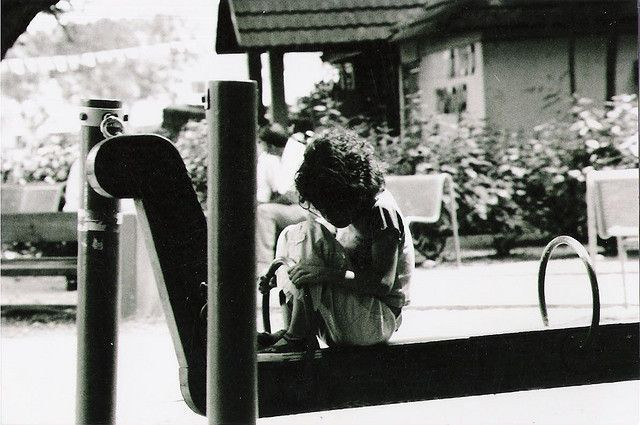Stalling Motor Skills Linked To Worsened Social Ability Among Kids With Autism Spectrum Disorder

On the playgrounds of America, children learn to fight for their places in the overarching dominance hierarchies of human society, sometimes invisible but often painfully obvious.
In these laboratories of Social Darwinism, a boy or girl lingering on the sidelines of a kickball game may not only struggle for lack of social ability but for motor skills facilitating a smoother entry into the social sphere known as recess.
While previous study shows children with autism often struggle with interpersonal relationships, new research suggests a corresponding lack of motor skills — such as catching and throwing — may exacerbate those social deficits. Megan MacDonald, an expert on the movement skills of children with autism spectrum disorder, led a study at Oregon State University of younger children and adolescents with the diagnosis.
All 35 of the students, ages six to 15, were deemed high-functioning and attended mainstream classrooms. But those who seemed to struggle more socially also lacked for developed "object-control" motor skills, which involve more precision in movement than locomotion skills, such as catching and throwing — or the fine art of winging a dodge ball at another kid's head. Students who struggled with such physical skills were more likely to exhibit severe social and communication skills, researchers said.
"So much of the focus on autism has been on developing social skills, and that is very crucial," said MacDonald. "Yet we also know there is a link between motor skills and autism, and how deficits in these physical skills play into this larger picture is not clearly understood."
The development of motor skills may be a significant marker of a child's autism, as he effectively sidelines himself from the "Reindeer games," forever consigned to the "Island of Misfit Toys" from the classic children's story Rudolf The Red-Nosed Reindeer. Such children with autism may distance themselves from play given stunted motor development skills, which in turn may stunt social growth.
"Something which seems as simple as learning to ride a bike can be crucial for a child with autism," said MacDonald. "Being able to ride a bike means more independence and autonomy. They can ride to the corner store or ride to a friend's house. Those kind of small victories are huge."
Moreover, capability in the realm of physical intelligence — one of the seven basic human intelligences, as defined by Harvard psychologist Howard Gardner's "multiple intelligence theory" — leads not only to improved health but to success within the social domain as well.
"I often show people photos of what I like to do in my spare time — canoeing, hiking, snowshoeing, and then point out that these require relatively proficient motor skills," said MacDonald. "But that is not why I do those things. I'm doing it because I'm with my friends and having fun."
However, the experts have good news for parents and educators — motor skills can be taught, even to the most uncoordinated of students.
"We have programs and interventions that we know work, and have measurable impact on motor skill development," said MacDonald. "We need to make sure we identify the issue and get a child help as early as possible."
Source: MacDonald M, Lord C, Ulrich D. Children With Delayed Motor Skills Struggle More Socially. Adapted Physical Activity Quarterly. 2013.



























